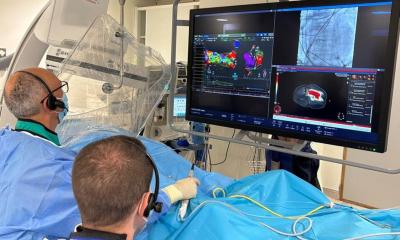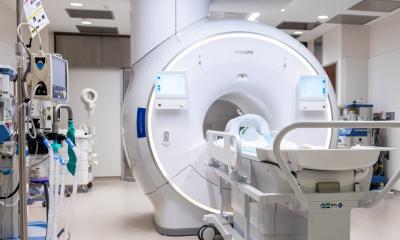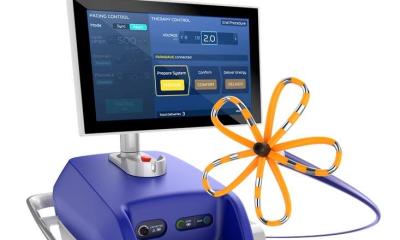Are Russian Medica s participants real heroes?
If the level of participation at a trade show is taken as an indication of the development of that country's industry, then we have to admit, with great sadness, that Russia can not be very proud of the number of exhibitors at Medica 2009.
Yet Russian entrepreneurs are hardy and optimistic because they have a growing confidence of winning a greater share of the international market.
Once again this year the Moscow Chamber of Commerce and Industry is responsible for a pavilion that brings together leading companies from that city. The attraction for Moscow participants in this shared exhibition is the opportunity for each company to create contacts while benefitting from the cooperative effort.
Other regions of the Russian Federation are also participating fully on their own account, some of them regular participants at Medica for many years.
Krylo, for example, is a research and production company from Voronezh that was created 18 years ago. Victoria Polyakova, head of the marketing department said Krylo has presented at Medica for eight years. With a background in the technically demanding aerospace industry, Krylo saw an opportunity to apply its know-how and technology to endoscopic instruments.
“This type of surgery was new for many Russian doctors back in the 1990s,” she explained. “We not only needed to demonstrate this new trend for minimally invasive surgery, but we also needed to develop and manufacture the new equipment as well.
New medical devices and diagnostics are emerging from small companies with big ambitions who are exhibiting as well at Medica.
Neurosoft from Ivanovo develops and manufactures digital equipment for applications that include clinical neurophysiology and functional diagnostics.
The company's CCO, Nicolay Smirnov told European Hospital that Neurosoft has been participating in international trade shows since 2004 and that today more than half of its production is exported.
Nelian is a small company located in Moscow, which executive Pavel Ivanov likes to call “the center of information technologies.“
A developer of systems of visual diagnosis, Nelian has created a method for the early detection of cancer called Diagraph DOT, and are seeking a buyer here at Medica.
“Russian people have a lot of great scientific ideas,” he said, adding they need, however the understanding and support of the Russian government and its policymakers.
One enterprise that manufacturers infant incubators in Ekaterinburg in the Urals has been encouraged by the success of its products to open offices in Switzerland.
So, the number of Russian companies in the Medica may be small, yet they remain confident that Russia has great potential for the developing of medical industry.
19.11.2009









